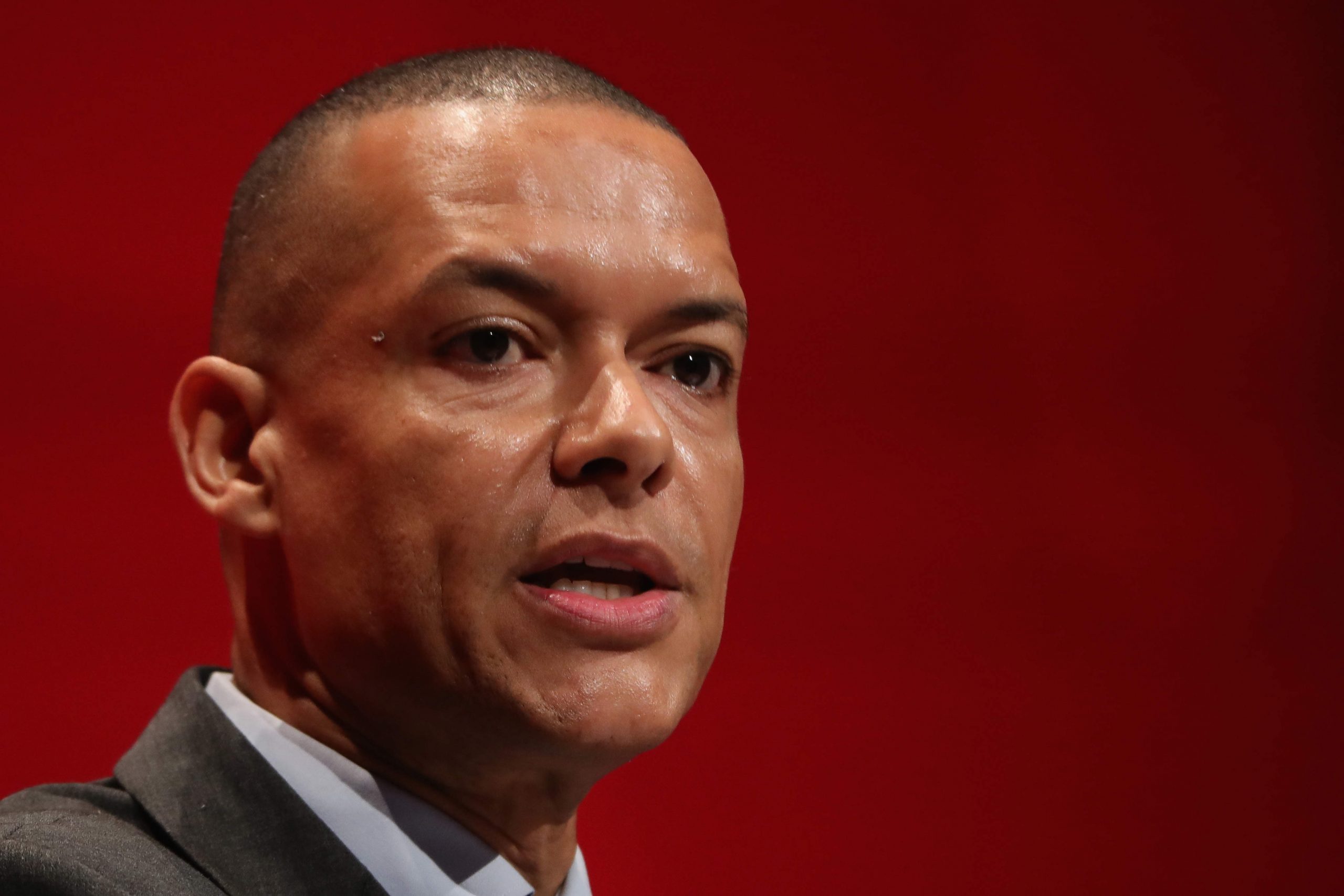
Clive Lewis’s first conference speech as shadow defence secretary has been overshadowed by a row over a last-minute change to his speech, when a section saying that he “would not seek to change” Labour’s policy on renewing Trident submarines disappeared.
Lewis took the stage expecting to make the announcement and was only notified of the change via a post-it note, having reportedly signed it of with the leader’s office in advance.
Lewis was, I’m told, “fucking furious”, and according to Kevin Schofield over at PoliticsHome, is said to have “punched a wall” in anger at the change. The finger of blame is being pointed at Jeremy Corbyn’s press chief, Seumas Milne.
What’s going on? The important political context is the finely-balanced struggle for power on Labour’s ruling national executive committee, which has tilted away from Corbyn after conference passed a resolution to give the leaders of the Welsh and Scottish parties the right to appoint a representative each to the body. (Corbyn, as leader, has the right to appoint three.)
One of Corbyn’s more resolvable headaches on the NEC is the GMB, who are increasingly willing to challenge the Labour leader, and who represent many of the people employed making the submarines themselves. An added source of tension in all this is that the GMB and Unite compete with one another for members in the nuclear industry, and that being seen to be the louder defender of their workers’ interests has proved a good recruiting agent for the GMB in recent years.
Strike a deal with the GMB over Trident, and it could make passing wider changes to the party rulebook through party conference significantly easier. (Not least because the GMB also accounts for a large chunk of the trade union delegates on the conference floor.)
So what happened? My understanding is that Milne was not freelancing but acting on clear instruction. Although Team Corbyn are well aware a nuclear deal could ease the path for the wider project, they also know that trying to get Corbyn to strike a pose he doesn’t agree with is a self-defeating task.
“Jeremy’s biggest strength,” a senior ally of his told me, “is that you absolutely cannot get him to say something he doesn’t believe, and without that, he wouldn’t be leader. But it can make it harder for him to be the leader.”
Corbyn is also of the generation – as are John McDonnell and Diane Abbott – for whom going soft on Trident was symptomatic of Neil Kinnock’s rightward turn. Going easy on this issue was always going be nothing doing.
There are three big winners in all this. The first, of course, are Corbyn’s internal opponents, who will continue to feel the benefits of the GMB’s support. The second is Iain McNicol, formerly of the GMB. While he enjoys the protection of the GMB, there simply isn’t a majority on the NEC to be found to get rid of him. Corbyn’s inner circle have been increasingly certain they cannot remove McNicol and will insead have to go around him, but this confirms it.
But the third big winner is Lewis. In his praise for NATO – dubbing it a “socialist” organisation, a reference to the fact the Attlee government were its co-creators – and in his rebuffed attempt to park the nuclear issue, he is making himself the natural home for those in Labour who agree with Corbyn on the economics but fear that on security issues he is dead on arrival with the electorate. That position probably accounts for at least 40 per cent of the party membership and around 100 MPs.
If tomorrow’s Labour party belongs to a figure who has remained in the trenches with Corbyn – which, in my view, is why Emily Thornberry remains worth a bet too – then Clive Lewis has done his chances after 2020 no small amount of good.





